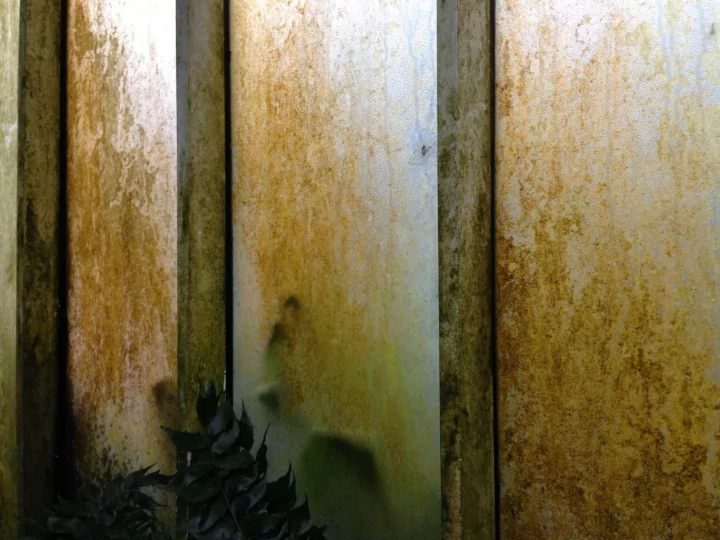

� � � � � COLLECTING, SHOWING AND � STAGING PLANTS � � A FILMIC ANALYSIS OF THE BOTANICAL GARDEN BERLIN-DAHLEM: � � HISTORIES AND PROJECTIONS IN CONTEMPORANEITY � BARBARA MARCEL BARBARA MARCEL � � � � Supervisors: � � Prof. Prof. Dr. phil Michael Lüthy - Bauhaus-Universität Weimar � Prof. Dr. Livia Flores – Federal University of Rio de Janeiro – UFRJ-EBA � � � Bauhaus-Universität Weimar, Ph.D. of Fine – Artistic Research (2nd semester) � 1 �
� � � ABSTRACT ABSTRACT � Historiography as a contemporary art practice. � The Botanical Garden Berlin-Dahlem as an image . � Essayfilm and multi-perspective video installation. � 3 �
� � � � � � SUBJECTS SUBJECTS � I. A CULTURAL HISTORY OF GARDENS � The Garden - since ancient times, it has been perceived as a place of refuge from the everyday chaos of the City, an ideal scenario for the culture of free thinking , a space of isolated and controlled Nature . � First Botanical Gardens - From the 16 th century onwards, space for empirical observation and scientific research. � Michel Foucault Heterotopic Spaces . Typical modern spaces: library, museum, botanical gardens. � The Botanical Garden Berlin-Dahlem - Built between 1897-1910 by Adolf Engler as a Research Centre of a Colonial Flora. � 5 �
6 � Landscape project of Adolf Engler for the new Botanical Garden in Berlin-Dahlem, 1904th. �
� � � � � RESEARCH QUESTIONS RESEARCH QUESTIONS How can we observe the garden beyond an ideal retreat space for the city, or as a closed universe in itself? � What other stories can be created and perceived from the multi-geographical and multi-historical plant collection of the Botanical Garden Berlin-Dahlem? � How is it possible to actively bring it into relation with the theme of the perishable and finite nature of the contemporary world? � 7 �
� � � � SUBJECTS SUBJECTS II. ESSAYFILM AS A HISTORIOGRAPHICAL MEDIUM � Essayfilm – Concept of Christina Scherer (2001). � References: Trinh T. Minh-ha, Agnès Varda, Chris Marker, Harun Farocki. � Thinking through Images and with Images (montage). � Fragmented narratives, non-linear stories. � 9 �
„Der Essay ist eine Möglichkeit zur Neuanordnung der Bereiche des Ästhetischen und Epistemologischen, welche die herrschende Arbeitsteilung zwischen Wissenschaft und Kunst unterläuft.“ � � Theodor Adorno: Der Essay als Form. Theodor Adorno: Der Essay als Form. � In: In: Ders Ders. : Noten zur Literatur. . : Noten zur Literatur. � Hrsg.: Rolf Hrsg.: Rolf Teidemann Teidemann. Suhrkamp, Frankfurt am Mai 1988, (1958). . Suhrkamp, Frankfurt am Mai 1988, (1958). � 8 �
Still from the video: „Victoria Amazonica“. Barbara Marcel, 2015/2016. � 11 �
� � � � � � � METHODOLOGY METHODOLOGY � Empirical analysis. � Investigation in Archives and in the Museum of the Botanical Garden. � Walter Benjamin – Historical Materialism. � Stories with postcolonial focus (Tropical flora of the garden). � Connections to the current era of the Anthropocene. � 12 �
Library of education and practical knowledge for military contender, Volume I, 1905. German publisher Bong & Co Berlin * Leipzig * Wien * Stuttgart. � 13 �
� � � � � CURRENT BIBLIOGRAPHY CURRENT BIBLIOGRAPHY THEORY � Cultural history of the Botanical Garden Berlin and some of ist plants. � Theories of historiography (de Certeau, Dipesh Chakrabarty, Foucault, Kosellek). � Post- and decolonial theories (Chakravorty Spivak, Júlia Almeida, Walter Mignolo, Anibal Quijano, Enrique Dussel) . � Theories of modernity / Anthropocene era (Donna Haraway, Eduardo Viveiros de Castro, Bruno Latour, Suely Rolnik). � Theories of space (Bachelard, Foucault, Pápay, Schivelbusch, Schroer ) . � Art and Politics: politics of images and the aesthetic regime of art with Jacques Rancière. � 14 �
� � FIRST WORKS FIRST WORKS ARTISTIC RESEARCH � Victoria Amazonica , 22 min. � 15 �
� FIRST WORKS FIRST WORKS ARTISTIC RESEARCH � “ The Ever-Garden Effect ”, 45 min. Omonoia Athens Biennale 2016. 18 �
� � THANK YOU � � � � � � � 19 �
Recommend
More recommend